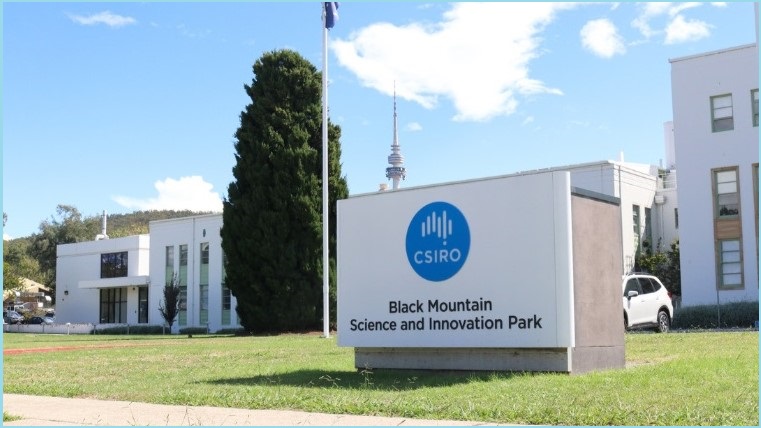Donald Trump’s ideological cleansing threatens diversity, equity, and inclusion (DEI) initiatives in Australia’s research and academic sectors, experts have warned as CSIRO joins the list of Australian institutions targeted by US authorities amidst wan 2025 Budget R&D support.
Researchers at the national research agency this week became the latest to receive a questionnaire asking them questions such as whether they receive funding from China, whether they are undertaking climate or “environmental justice” projects, and more.
Reports said academics at no fewer than 13 universities had previously received the questionnaires, which include over 30 questions about whether US-funded research projects align with Trump’s recent orders against “gender ideology” and “Marxist equity”.
“The use of Federal resources to advance Marxist equity, transgenderism, and green new deal social engineering policies is a waste of taxpayer dollars that does not improve the day-to-day lives of those we serve,” a memo from the US Office of Management and Budget warns.
US authorities have already cut funding to six Australian universities – including ANU, Monash, the University of Melbourne, University of Sydney, University of NSW and University of Western Australia – and further cuts are feared as the net widens.
The institutions join the growing ranks of universities targeted by the Trump administration’s war on universities, which this month saw Columbia University agree to review its DEI policies after the government stopped $635 million ($US400 million) in research funding.
It was a transformative moment in the history of Columbia, whose scientists the government has long turned to – and funded – for work critical to that country’s future, such as the 1940s-era Manhattan Project that led to the creation of the atomic bomb.
Fast forward to today, however, and the government is actively attacking academics in the US and outside of it – making real a 2021 speech in which now Vice President JD Vance claimed that “we have to honestly and aggressively attack the universities in this country.”
R&D funding on the ropes
That war’s arrival on Australia’s shores comes at a tough juncture for CSIRO, which some feel has been overlooked by a 2025-26 Budget that Group of Eight Chief Executive Vicki Thomson said “ignores the critical role” of research bodies.
“In whatever sector of the economy the Government is prioritising, it is our research and innovation and our graduates who are critical to the nation fulfilling its economic and social potential,” Thomson said after the Budget was handed down.
Noting that Australia’s R&D spend of 1.7 per cent of GDP is just over half the 2.7 per cent OECD average, she warned that “Australia is not fulfilling its economic potential…. Greater investment in R&D is key to this and must be a national priority.”
Yet “there’s a limit to how much our universities can contribute to R&D, given our reliance on international student fee revenue to fund research,” she added, noting that higher education research spending grew from 0.40 per cent of GDP in 2000 to 0.55 per cent now.
International outreach had helped universities and CSIRO overcome this, with financial partnerships that benefited both Australian and foreign interests: the US government, universities, national laboratories and industry are CSIRO’s largest international partner.
In recent years, that has led to collaborations such as a 2022 partnership with the US Department of Energy (DoE) National Renewable Energy Laboratory (NREL) to collaborate on research around renewable energy, electricity grids, hydrogen, and plastic waste.
With Trump freezing spending on DoE initiatives and clean energy in his sights, the future of such partnerships is uncertain – with fear and uncertainty compounded by an “awesome” and award-winning CSIRO commitment to DEI that extends to its AI and cybersecurity work.
Lie down with dogs, wake up with fleas
With such ideals shaping CSIRO’s R&D work – and that of the Australian universities that are critical to its role – the threatened withdrawal of US funding could be catastrophic as Australian institutions are forced to choose between long-held ideals and financial reality.
This would likely flow through to ICT industry diversity initiatives, which have been widely supported as Australia seeks to reverse years of gender inequality and tap marginalised groups for an ICT industry that needs both diversity and manpower.
RMIT University, for example, last year tapped Commonwealth government support to deliver a free Diploma of Information Technology for women and gender diverse students while the government’s Future Skills Organisation is promoting new diversity metrics.
The Trump administration’s ideological crackdown “is causing us a fair bit of grief” amongst partners and US-based customers, Quincy Hall, product director at corporate diversity measurement firm Diversity Atlas, told Information Age.
Although he said past research has confirmed 79 per cent of respondents in a recent study believe DEI initiatives improve well-being in the technology sector, Hall noted that “the Trump administration are fighting a strange war against data.”
“They refer to this data as ‘ideology’,” he said, noting that companies such as JPMorgan Chase “have already made a slight adjustment to their use of words” and others are rebranding DEI managers as P&C managers.
“The data will eventually win this war, but it will be a long fight,” he added.
“Our message to CSIRO and any other organisation under pressure is to stand firm, produce data, but maybe use new and different words – because it’s the words that seem to be most upsetting the Trump administration.”










